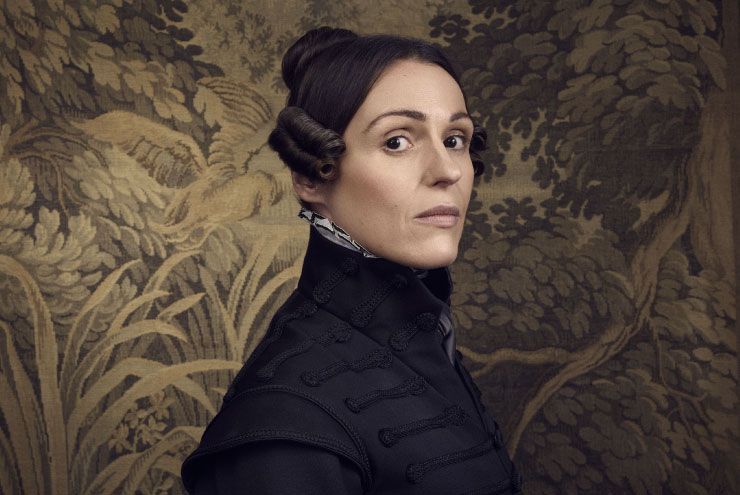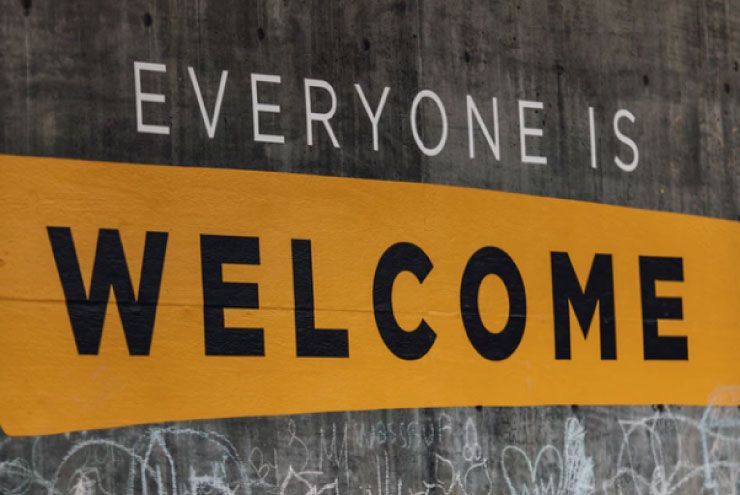By Dr. Laura McGuire
Representation matters. The way we and our communities are portrayed matters. In observing queer characters in books, movies, and on television, we see options for who we can be and validation of who we already are. As human beings, we are in constant need of affirmation that we are not alone—that our thoughts and experiences aren’t isolated.
With time’s progression, the depictions of queer people’s lives and loves have evolved. In so many ways, we have come so far, and yet familiar, problematic tropes still get tirelessly played out. In 2019 a slew of queer-inclusive media came out—most was groundbreaking and told stories rarely before touched upon. I take great hope in such representation, and truly believe that, in the decades to come, we will continue to shed light on the stories left untold. Below are some of my favorite queer TV and movie recommendations from 2019 that are the perfect escape from our current 2020 reality.
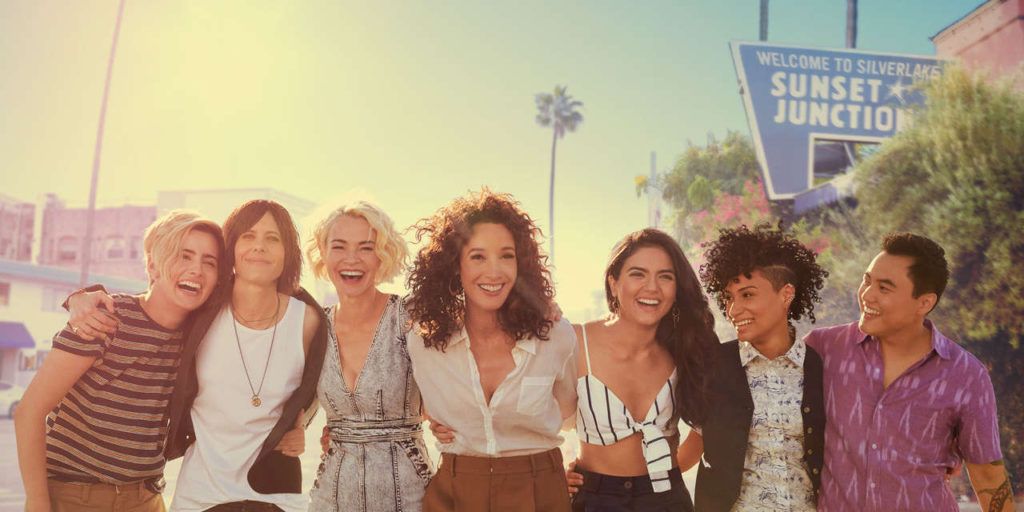
Photo: Showtime
Last year, we got to watch the iconic lesbian classic The L Word evolve into The L Word: Generation Q. I grew up watching the original L Word and, like so many baby dykes, found this representation of queer women on TV to be groundbreaking (and earth shattering). As time went on, however, we realized that the L Word’s characters were still very limiting, and that the lack of storytelling structure left us wanting more and better. The revamp of the show does just that. The storyline is strong, clear, and consistent. The characters grew, while at the same time, stayed true to the traits and personalities for which we knew and loved them. The second incarnation of the show particularly shines in its portrayal of diversity without tokenization. From a lesbian pastor, to an Asian gay trans man, to the conversation around lesbian throuples, to queers in recovery, the show made the depiction of and conversation around LGBTQ lives that much more vibrant and nuanced. While I will always love the classic, seeing how queer media can evolve to become more inclusive is refreshing and inspiring.
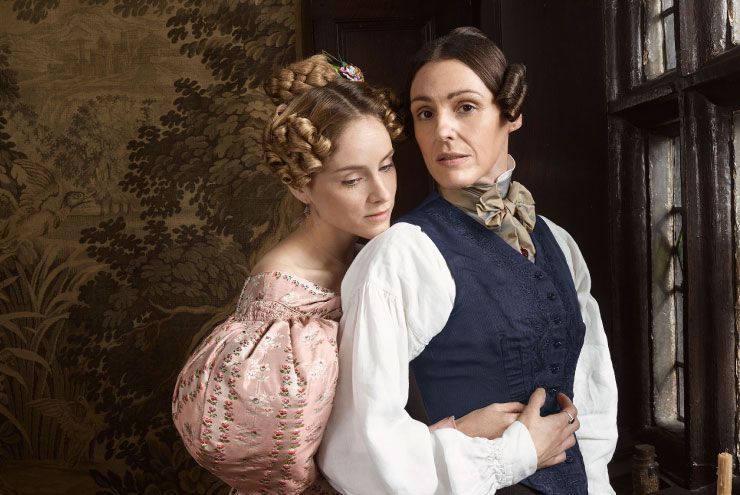
Photo: Jay Brooks/HBO
My recommendation for the most original queer series is Gentleman Jack. I’m a big history geek, and nothing sells me on a movie or show more than hearing it’s based on a true story. Gentleman Jack is based on the dairies and historical accounts of Anne Lister, a butch lesbian who lived in the mid-1800s and whose business sense and bold way of living set her wildly apart. Gentleman Jack follows Lister through her daily life, her love story with the woman she married, and the frustrations she experienced trying to find balance between navigating a world never meant for her and not compromising on the things she wanted. So rarely do we see queer characters from history, much less ones who lived openly. It’s comforting to know that the trials we face today have been faced and overcome by those who went before us.
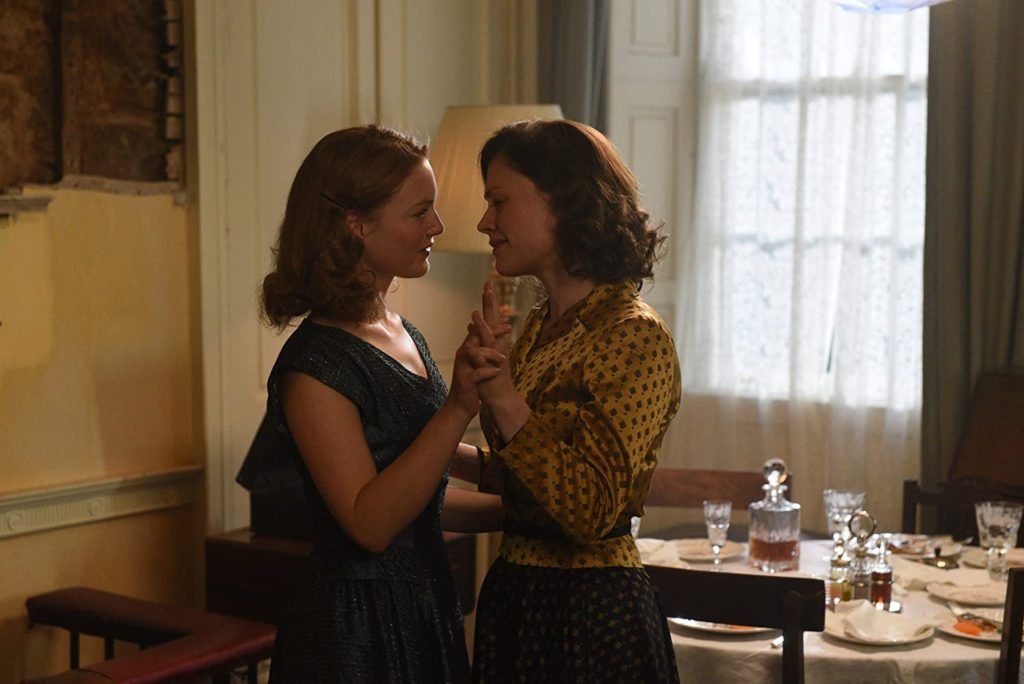
Photo: Vertigo Releasing
On the queer film front, I highly recommend Tell It to the Bees (the artistry and cinematography are to die for!). I have often been disappointed by the quality of lesbian films, but that’s not the case with Bees. The storyline is eloquent and nuanced in many ways, and the writing is poetic. Its one downfall is that the story follows an all-too-played-out script: two women, one out, one who thinks she’s straight, meet, fall in love, and the supposedly straight one realizes that lesbianism is divine. A jealous man tries to pull them apart and, in the end, their fates are doomed.
Shows that are not queer-centric but did an excellent job of LGBTQ inclusion were Netflix’s Gentefied and HBO’s Mrs. Fletcher. The queer characters in these stories were woven into the larger storyline naturally and without tragedy. I loved seeing our lives depicted as normal parts of communities, families, and desires.
While this is only a tiny sampling of current queer media, each of these shows and films gave me insight into how Hollywood sees my community—both the progress and stagnation of our narratives in art. My hope is that these tales are ever-expanding. The better our lives can be reflected in the media, the better for everyone within and outside of our world.


